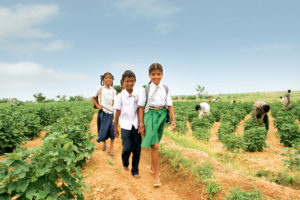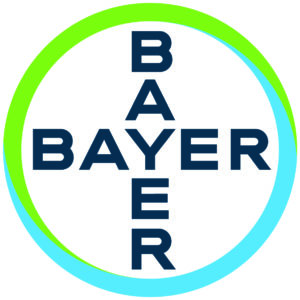“Health for all, Hunger for none” – Guided by our vision we promote inclusive growth and a responsible use of resources to help people and planet thrive. The respect for human and labour rights is an essential element of our sustainability activities.
Contributing to sustainable development is more than a promise but a core element of our corporate strategy. In line with the global Sustainable Development Goals (SDGs) of the United Nations – which are a game changer in combatting the immense challenges to sustainable development – we have set ourselves ambitious targets. For example, we aim to provide access to modern family planning to 100 million women in low- and middle-income countries by 2030 and to become climate neutral on our own sites until 2030, to name just a few.
Transparency and Accountability
In the future we want to be judged on how effectively we attain our targets. With transparency and accountability, we are putting robust governance in place to bring everyone at Bayer behind our ambitions. Therefore, our sustainability targets are being integrated into the company’s decision-making processes and into the remuneration systems of all managerial staff including the Board of Management. Furthermore, last year we empowered an independent, externally staffed Sustainability Council to challenge us in a critical but constructive manner from the top down where its members think we can do better.
Respecting and fostering human rights and labour standards
The respect for human rights is a responsibility that exceeds the scope of companies’ own immediate activities spanning across business relationships in their value chain.
We acknowledge, that while much has already been achieved regarding human rights, there is still a lot of work ahead – for us and the entire global community. At Bayer we are working on continuously improving these standards in our own sphere of influence, for example by preventing child labour in our supply chain and promoting hyper-awareness about challenges in our supply chain through comprehensive human rights risk assessments. Sustainability and human rights are among the responsibilities of the Chairman of the Bayer Board of Management, which illustrates our level of commitment to this very important issue.
In early 2020, we explicitly expressed our support for the upcoming European Commission initiative on Sustainable Corporate Governance including mandatory human rights due diligence. The EU initiative holds great potential to generate momentum in the protection and promotion of human rights.
The UN Guiding Principles on Business and Human Rights (UNGPs), provide global standards for preventing and addressing the risk of adverse impacts on human rights linked to business activity. Bayer firmly supports these principles and continues to advocate for their adoption by the business community. We believe EU regulation should align with the guiding principles as we believe they are still the right way to both incentivise and enable companies to improve livelihoods.
Involving business partners and suppliers
At Bayer, our human rights activities are based on the Human Rights Due Diligence as described in the UNGPs. We have documented our full support for human rights in a globally binding
Bayer Human Rights Policy . We expect our business partners and suppliers to respect human rights, as defined in our Supplier Code of Conduct which also includes requirements for implementation in our business partner’s upstream supply chain. Through evaluations, we verify the implementation of the code requirements by means of online assessments or on-site audits conducted by verified third parties. In case performance deficits are found, we help our suppliers to improve. But if a supplier is not making sufficient efforts to remedy its deficits, we discontinue the relationship.
We have a network of approximately 97,000 direct suppliers (as of 2020). This sheer volume shows the huge potential companies such as Bayer can leverage to exert even more influence to improve conditions across a wide field of operations. However, liabilities of companies need to be in sync with their actual ability to influence which decreases along the supply chain.
Protecting children
The risk of human rights violations poses a particular challenge for Bayer in the seed supply chain beyond our direct suppliers. The focus here is on the risk of child labour. Thus, we have worked effectively to implement a comprehensive multilevel Child Care Program in India, Bangladesh and the Philippines (the countries in which we identified a potential for child labour infractions through our risk assessment).
The program comprises of:

- Awareness raising of child labour among local communities and farmers;
- A comprehensive field monitoring program;
- Contractual ban of child labour combined with incentives and sanctions for farmers;
- Stakeholder dialogue to continuously improve the program;
- Improving children’s access to education through the ‘Learning for Life’ initiative (only in India).
Despite our own efforts, it would be unrealistic to assume that one firm alone can uphold the responsibility for tens of thousands of contracting parties. But complexity of global supply chains must not be used as an excuse for a “laissez-faire” approach toward the necessary respect for human rights. It is vital that the upcoming European Commission initiative on Sustainable Corporate Governance gets it right. Well-meaning actions often run the risk of an impractical framework leading to bureaucratic hurdles without any tangible impact. There is a risk that if the framework becomes too overarching in scope that human rights will become a secondary consideration, and this must be avoided.
We are aware of our responsibility and do everything we can to continuously implement the UNGPs fully and sustainably in our activities – today, and in the decades to come.


Janina Lukas, Head of Ethics & Social Impact at Bayer AG

















